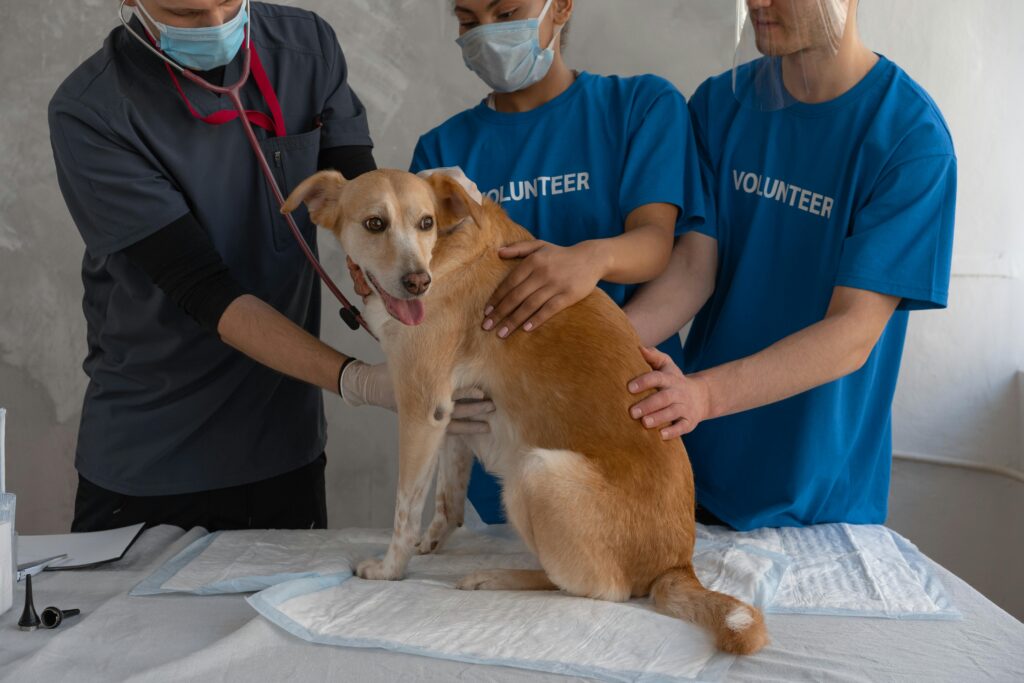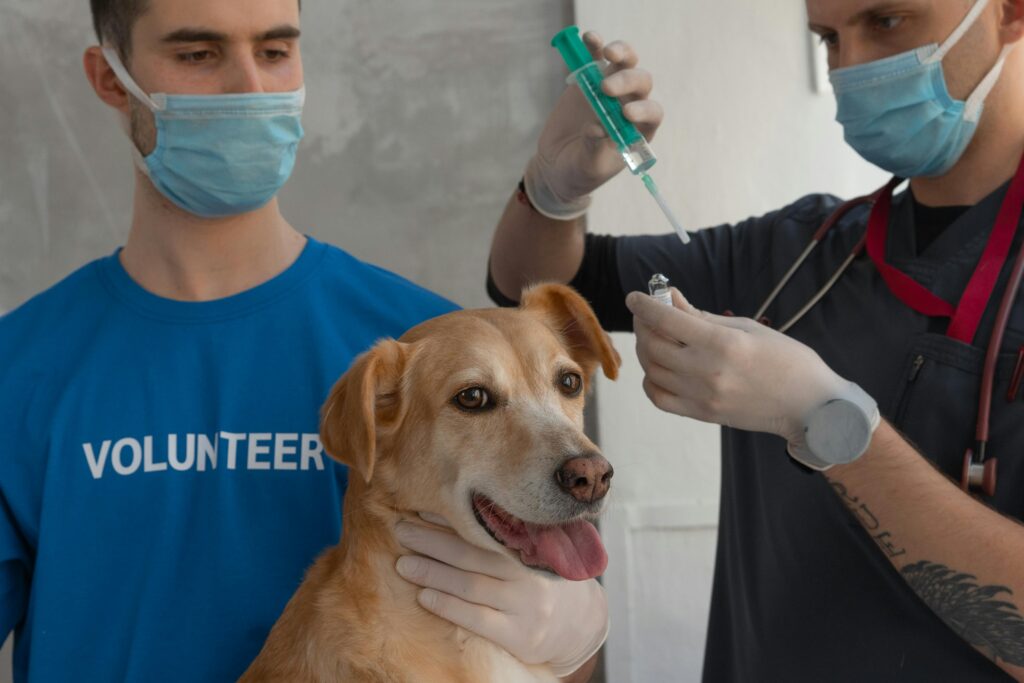
Welcoming a new puppy is exciting, but as a puppy parent, you also need to know when your furry friend might be under the weather. Because puppies can’t tell us how they’re feeling, it’s up to you to recognize the warning signs. In this post, we’ll walk through the common signals that your puppy may be sick and help you decide when to call the vet.
Change in energy or demeanor
A healthy puppy is curious, playful, and active. If your puppy suddenly becomes lethargic, uninterested in playing, or seems “off,” that could be a red flag. If this persists for more than 24 hours, it’s a good idea to consult your vet.
Loss of appetite or refusal to eat
Puppies normally have hearty appetites. A sudden drop in interest in food or refusing their usual meals signals that something may be wrong. If your puppy hasn’t eaten for a full day, especially when combined with other symptoms, call your vet immediately.
Vomiting and/or diarrhea
Occasional vomiting or loose stool can happen, for example, from something the puppy ate. But persistent vomiting, repeated episodes, or diarrhea—especially if there’s blood—are serious signs. Dehydration sets in fast in young puppies, so don’t wait too long before contacting your vet.
Changes in urination or drinking habits
If your puppy is drinking a lot more than usual or refusing water, or urinating much more or less often, these could indicate kidney issues, urinary tract infections, or other metabolic problems. Monitor these habits closely and alert the vet if changes are significant.
Signs of respiratory distress
Look out for coughing, wheezing, rapid or labored breathing, nasal discharge, or bluish gums or tongue. These may indicate that your puppy is struggling to breathe or has a serious infection. This is a situation where you should act quickly and seek veterinary care immediately.
Skin issues, coat changes, or excessive scratching
Healthy puppies usually have a clean, shiny coat. If you notice dull fur, hair loss, excessive scratching or licking, redness, or swelling, it could be allergies, parasites, or infection. Parasites and skin conditions are common in young dogs, so it’s best to check early before it worsens.
Sudden weight loss, bloated belly, or poor weight gain
Especially in puppies, not gaining weight or losing weight unexpectedly is a significant concern. A bloated, hard belly may indicate worms, blockages, or other serious internal problems. If your puppy seems thinner than usual or has a distended stomach, seek veterinary advice.
Unusual behavior or signs of pain
Whimpering, reluctance to move, limping, dragging feet, or showing signs of pain such as trembling or hiding might indicate injuries, congenital issues, or serious illness. Puppies are resilient, so if you notice any pain, it usually means something is truly wrong.
When Exactly to Call the Vet
You should call your vet promptly if:
- Vomiting or diarrhea lasts more than 24 hours or includes blood.
- Your puppy is very lethargic, refuses food or water, or has breathing problems.
- There is a distended belly, difficulty urinating or defecating, or limping that doesn’t improve.
- Nose or eye discharge is thick, colored (green or yellow), or you see pale or blue gums.
You can monitor for a short time if:
- Your puppy had one mild episode of vomiting or loose stool but is otherwise acting normal.
- Appetite is slightly down but there are no other symptoms.
In these cases, still call your vet if the condition doesn’t improve within 12–24 hours.
Tips for Puppy Parents
- Keep your puppy’s vaccination schedule up to date, as many serious diseases like Canine Parvovirus and Distemper are preventable.
- Puppy-proof your home by removing small objects, toxic plants, and chemicals that your puppy could ingest.
- Maintain proper hygiene by cleaning bedding, bowls, and toys regularly, as puppies have weaker immune systems.
- Observe your puppy daily for changes in eating, drinking, elimination habits, and energy levels. Early detection makes treatment easier.
- If you live in an area where vet services are limited, identify the nearest 24-hour veterinary clinic in advance and have a plan for emergencies.
- Keep records of vaccinations, deworming, and any previous health issues to help your vet diagnose more efficiently.
Final Word
You want your puppy to grow healthy and happy, and being alert to the signs your puppy is sick helps you act before things get worse. If you ever feel that something isn’t right, it’s always better to call your vet sooner rather than later. Early intervention often means quicker recovery and fewer complications.
Your puppy’s well-being depends on your care and attention. Stay observant, follow preventive measures, and you’ll give your puppy the best chance at a healthy, joyful life. PetsDogPuppy


